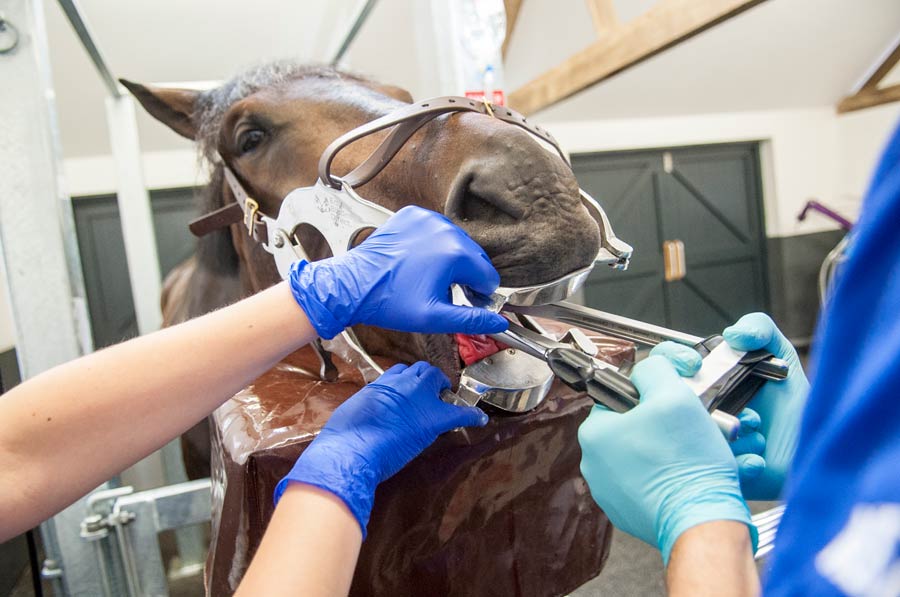Horse biting problems and teeth issues are common concerns among equestrian enthusiasts and horse owners. Proper understanding and management of these issues are crucial to ensuring the overall well-being and performance of your equine companion. Poor dental health can lead to various behavioral and health problems, which can be distressing for both the horse and the owner.
In this article, we will dive into the causes, symptoms, and solutions for these problems, providing you with valuable insights into how to maintain your horse’s dental health and prevent biting issues. Let’s begin by exploring the connection between dental health and biting behavior in horses.

The Connection Between Teeth and Biting Behavior
How Dental Problems Affect Behavior
Dental problems can significantly impact a horse’s behavior. Horses use their teeth for eating, grooming, and interacting with other horses and humans. When dental issues arise, they can cause discomfort, leading to behavioral changes such as biting, head tossing, and refusal to accept the bit.
Common Dental Issues in Horses
Some common dental issues that can lead to biting problems include sharp enamel points, hooks, ramps, and wave complexes. These problems can cause pain and discomfort, making it difficult for horses to chew properly and leading to aggressive behavior. Regular dental check-ups can help identify and address these issues before they escalate.
Symptoms of Horse Biting Problems
Signs of Dental Discomfort
Recognizing the signs of dental discomfort is crucial for addressing biting problems. Some symptoms to watch for include drooling, bad breath, difficulty chewing, and weight loss. Additionally, horses may exhibit behavioral changes such as head shaking, resistance to the bit, and aggression.
Behavioral Changes Indicative of Biting Issues
Biting issues often manifest as behavioral changes. Horses may become more aggressive, nipping at handlers or other horses. They might also exhibit signs of frustration, such as tail swishing or ear pinning. Understanding these signs can help you address the underlying dental issues effectively.
Preventing Dental and Biting Problems
Regular Dental Check-ups
Regular dental check-ups are essential for maintaining your horse’s dental health. An equine dentist can identify and address potential issues before they lead to biting problems. It’s recommended to schedule dental exams at least once a year, although more frequent visits may be necessary for older horses or those with known dental issues.
Proper Nutrition and Feeding Practices
Nutrition plays a vital role in dental health. Providing a balanced diet with appropriate forage and concentrates can help maintain healthy teeth and prevent dental issues. Ensure that your horse has access to clean, fresh water at all times, as hydration is essential for overall health.
Solutions for Existing Biting Problems
Addressing Pain and Discomfort
If your horse is already experiencing biting problems, it’s essential to address any underlying pain or discomfort. This may involve dental treatments such as floating the teeth or removing sharp points and hooks. Consult with a qualified equine dentist to develop a treatment plan tailored to your horse’s needs.
Training and Behavior Modification
In addition to addressing dental issues, training and behavior modification can help resolve biting problems. Work with a qualified trainer to develop a training plan that focuses on positive reinforcement and desensitization techniques. Consistency and patience are key to achieving lasting results.
The Role of Equine Dentists
When to Consult a Professional
Consulting with an equine dentist is essential for maintaining your horse’s dental health. These professionals have the expertise and tools necessary to perform thorough dental exams and treatments. If you notice any signs of dental discomfort or biting issues, don’t hesitate to seek professional help.
Choosing the Right Equine Dentist
When selecting an equine dentist, look for someone with experience and a good reputation in the industry. Ask for recommendations from fellow horse owners or your veterinarian. A skilled equine dentist can provide valuable insights and solutions for maintaining your horse’s dental health and preventing biting problems.

FAQs About Horse Biting Problems and Teeth
What causes horse biting problems?
Horse biting problems can be caused by dental issues, discomfort, or behavioral factors. Identifying the underlying cause is crucial for addressing the problem effectively.
How often should a horse have dental check-ups?
Horses should have dental check-ups at least once a year, although more frequent visits may be necessary for older horses or those with known dental issues.
Can training help resolve biting problems?
Yes, training and behavior modification can help resolve biting problems. Work with a qualified trainer to develop a plan that focuses on positive reinforcement and desensitization techniques.
For more information on equine dentistry, you can visit Equine Dentistry Basics.
This article contains affiliate links. We may earn a commission at no extra cost to you.
